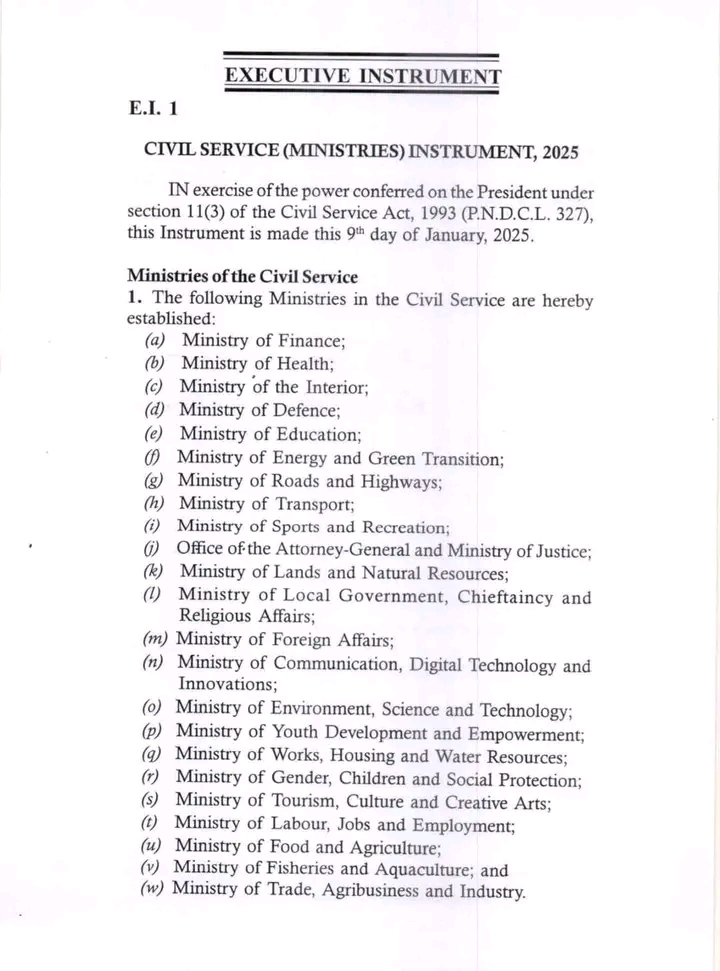President Mahama reshapes governance: ministries reduced to 23 in major overhaul

President John Dramani Mahama has restructured Ghana’s ministries, reducing their number from 30 to 23. This reorganization, formalized through the Civil Service (Ministries) Instrument, 2025, was signed on January 9, 2025.
The restructuring includes notable changes such as the rebranding of the Ministry of Energy to the Ministry of Energy and Green Transition, underscoring a commitment to renewable energy and environmental conservation. Additionally, the Ministry of Communication has been expanded to the Ministry of Communication, Digital Technology, and Innovations, reflecting a focus on technological advancement.
This initiative aligns with President Mahama’s campaign promise to streamline government operations, aiming for a leaner and more productive administration. By consolidating ministries and redefining their mandates, the government seeks to reduce bureaucracy, optimize resource allocation, and address pressing national issues more effectively.
The newly established ministries are:
Ministry of Finance
Ministry of Health
Ministry of the Interior
Ministry of Defence
Ministry of Education
Ministry of Energy and Green Transition
Ministry of Roads and Highways
Ministry of Transport
Ministry of Sports and Recreation
Office of the Attorney-General and Ministry of Justice
Ministry of Lands and Natural Resources
Ministry of Local Government, Chieftaincy and Religious Affairs
Ministry of Foreign Affairs
Ministry of Communication, Digital Technology and Innovations
Ministry of Environment, Science and Technology
Ministry of Youth Development and Empowerment
Ministry of Works, Housing and Water Resources
Ministry of Gender, Children and Social Protection
Ministry of Tourism, Culture and Creative Arts
Ministry of Labour, Jobs and Employment
Ministry of Food and Agriculture
Ministry of Fisheries and Aquaculture
Ministry of Trade, Agribusiness and Industry
This strategic realignment is expected to foster better accountability, cost-efficiency, and streamlined decision-making processes within the government, ultimately contributing to national development and improved public service delivery.
Credit:- GNA, myjoyonline




